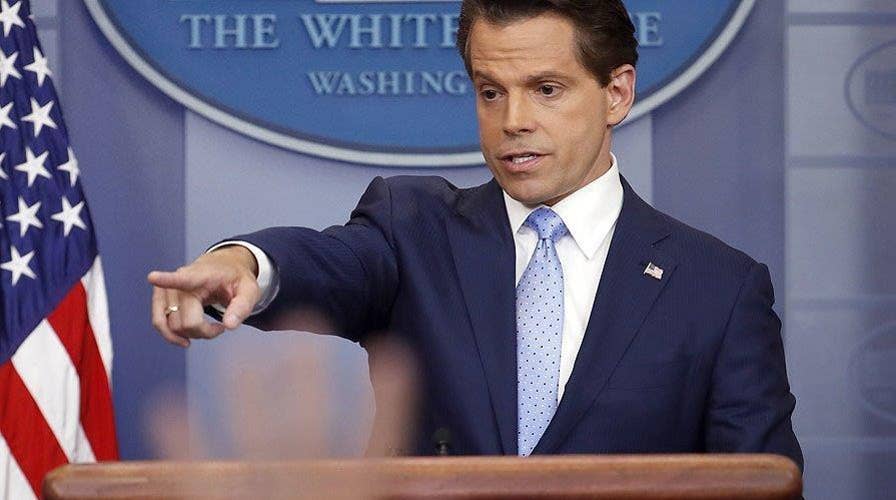There has never been a White House spokesman as famous as Sean Spicer—or one subject to as much mockery.
And yet in many ways he was in an impossible job.
Spicer’s resignation on Friday, which had been regularly predicted for months, ends a difficult tenure in which he was caught in the crossfire between a president who distrusted the press and journalists who had little sympathy for Donald Trump.
Spicer made some mistakes, and the briefings got too heated at times. He told me several times that he viewed this as a combination of journalistic grandstanding, media bias and a search for sensationalism.
Many reporters, though, viewed Spicer as unnecessarily combative and often evasive, escalating the tension level in briefings that became a highly rated reality show.
But as most of the briefings were moved off camera, and most were handed off to Sarah Huckabee Sanders—now the new press secretary—Spicer’s star seemed to dim.
Trump wanted Spicer to stay, but he didn’t want to report to the new communications director, Anthony Scaramucci. And given the rockiness of the past months, that’s understandable.
Still, the middle-school tone of this na-na-na-na-hey-hey New York Times editorial, reveling in Spicer's coming departure, is just remarkable.
It was easy for outsiders to bash Spicer, and to think of him in Melissa McCarthy terms. He had been in a state of combat with the White House press corps since his first day, when he delivered a stinging lecture about holding the media accountable triggered by the flap over the size of the inaugural crowd.
But in this and many other matters, he was following the orders of a president who watched the briefings, sent him notes and critiqued him afterward.
Sometimes Spicer was effective in driving the White House message. At other times he got tangled up in semantic arguments (whether the executive order could be called a “travel ban”), had to defend presidential claims (on Obama “wiretapping”), or said things that were later undercut by Trump.
But Spicer’s problem, as the former RNC spokesman brought in by Reince Priebus, is that he had no previous relationship with the president.
Anthony Scaramucci doesn’t have that problem. He has been friends with Trump for years. And as a wealthy former Goldman Sachs executive and hedge-fund manager, he has Trump’s respect.
What Scaramucci doesn’t have is Washington experience. Judging by his debut at the podium, where his brash, humor-infused style played well, he may be able to make the transition. And I know from my interviews with him that he respects journalists, having played one on TV (briefly serving as host of Fox’s “Wall Street Week”).
But Scaramucci still has to figure out such matters as whether to bring most of the briefings back on camera. That will put a Spicer-like spotlight on Sanders. But it would also mean the White House could get back to using television to get its message out and more openly engaging with reporters.
Maybe the new communications guru can even persuade his boss to hold more news conferences.













































